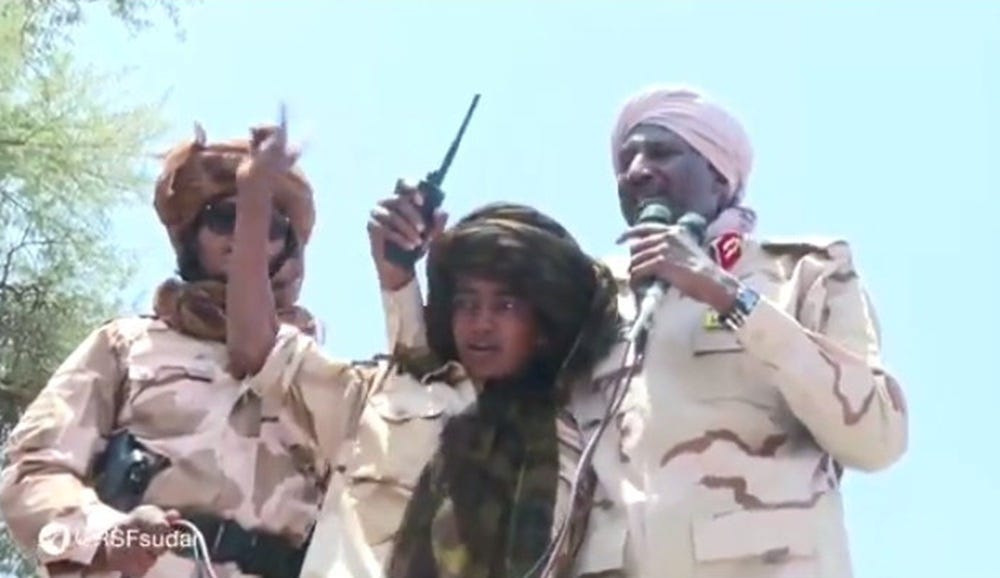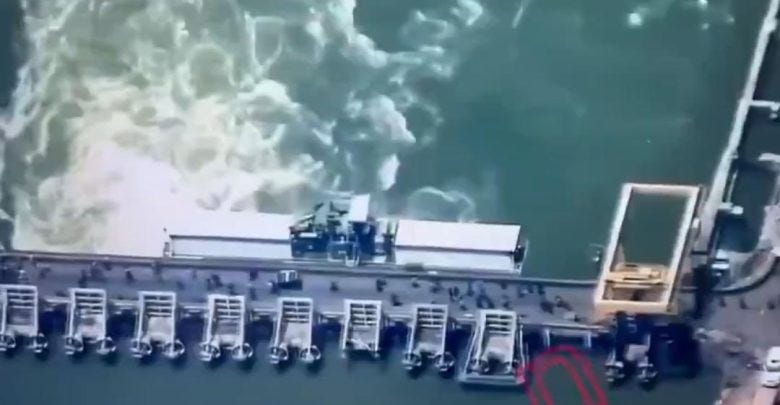RSF seizes control of Um Kadada in North Darfur
Paramilitary group's deputy leader threatens to take war to northern regions
The paramilitary Rapid Support Forces (RSF) on Thursday morning captured the capital of Um Kadada locality in North Darfur State, where the Sudanese Armed Forces (SAF) had stationed its 24th Infantry Brigade of the besieged 6th Infantry Division headquartered in the state capital, El Fasher.
The town is located approximately 142 kilometers east of El Fasher, and the 24th brigade marks the second military garrison to fall to the RSF in North Darfur in less than a month. In mid-March, the RSF captured Al Maliha, a strategic location where the military had bases for the Joint Forces, the Central Reserve Police, and local allied militias, including the armed popular resistance.
The capture of Um Kadada follows recent statements by the RSF’s deputy commander, Abdelrahim Hamdan Daglo, who declared the mobilization of over 20,000 fighters to extend the conflict into northern Sudanese states, areas that are home to the country’s ruling elites.
The RSF’s control over the strategically important garrison was confirmed through videos analyzed and geolocated by Sudan War Monitor. The videos show RSF combatants filming both inside and outside the headquarters of the Brigade as well as inside the headquarters of the locality in Um Kadada.
The town is situated along the Inqaz Al-Gharbi highway, a crucial route linking the Darfur region to North Kordofan and the capital, Khartoum. This victory significantly bolsters the RSF’s position in Darfur, where the group has held a dominant military presence since the onset of the conflict.
In the afternoon, local militias aligned with the Sudanese military briefly recaptured the town, but the paramilitary group arrived around 5:00 PM local time to regain control, according to sources.
The RSF, in a statement described the capture as a “decisive” victory, targeting not only the Sudanese army but also what they called “affiliated mercenary groups.” The group claimed that their forces had killed hundreds of Sudanese soldiers during the dawn assault on Thursday.
“The Rapid Support Forces have continued their victories on multiple fronts, and today, Thursday, our brave forces achieved a major victory by liberating Brigade 24 (Um Kadada), part of the Sixth Division in North Darfur, from the grip of the terrorist army and its affiliated mercenary groups. Our forces have established full control over the strategic locality of Um Kadada.
“Our heroes fought a decisive battle, demonstrating rare courage and unparalleled heroism, which ended with the complete liberation of the strategic city of Um Kadada. They seized combat vehicles with their full equipment, along with various weapons and ammunition that were in the enemy’s possession.
“The battle resulted in the death of hundreds of enemy fighters, while the remaining forces fled, and our troops are still in pursuit of their fleeing remnants.
“We confirm the continued progress of our forces with determination until complete liberation, the overthrow of the remnants of the former regime, and the dismantling of the ‘Port Sudan Gang.’ We aim to establish justice and build Sudan on new and fair foundations,” they said in the statement.
The RSF's growing control in the Darfur region comes in the wake of a military defeat in Khartoum in March, where the group lost significant ground to the Sudanese army. Despite these setbacks in the central Sudan region, the RSF controls much of Darfur, including key strategic areas in El Geneina, Nyala, El Daen, Zalingei, among others.
Um Kadada, like others that have fallen to the RSF, was vital to Sudan's military operations that aim at retaking the region from the paramilitary group.
Threats of conflict expansion to northern Sudan
The capture of Um Kadada coincides with escalating threats from the RSF’s leadership to expand their operations into northern Sudan, areas that are traditionally home to the ruling Sudanese elites.
In a speech to RSF recruits last week in South Darfur, Deputy Commander Abdelrahim Hamdan Daglo claimed that the RSF had mobilized a large force, including 2,000 armored vehicles, in preparation for an assault on the northern states, specifically River Nile and Northern States. These areas are home to prominent figures, including Sudanese military commander Abdel Fattah al-Burhan and former Sudanese presidents.
“Today, 2,000 vehicles set out on their way to the Northern State. We were wrong and didn’t know where the battle [should start], but now we know, and we are coming to you in the Northern State. The battle is in the Northern State and the River Nile,” Daglo declared in the public address.
His statement reflects the RSF’s long-standing intention to target the northern regions of Sudan, which they regard as the stronghold of the country’s elite, particularly from the deposed ruling party, the National Congress Party (NCP), which was overthrown by street protests backed by the military and the RSF in April 2019.
Daglo also issued a stern warning to those opposing the RSF’s military mobilization, as well as individuals within the RSF accused of sabotaging its efforts, including the sale of critical military logistics vital for their fight against the Sudanese military.
“Arms and ammunition dealers [within the RSF] should be killed, and those who defend the NCP should be killed. Anyone who opposes the mobilization will be killed immediately… will be liquidated immediately… and we will shoot him,” Daglo threatened, signaling an escalating internal purge within the RSF itself.
The severity of these orders highlights the group’s internal struggles, as well as the growing tensions between different factions within the RSF, which it itself is the alliance of different ethnic groups of Sudan’s nomadic Arabs.
RSF retreat from central Sudan
At the onset of the war in April 2023, the RSF rapidly expanded from Khartoum, the capital where the deadly conflict began, advancing into key Sudanese cities, including the agricultural heartlands of Al Jazira and Sennar states in the interior.
However, since September 2024, the paramilitary has encountered significant setbacks, including defeats driven by defections and internal divisions. The RSF struggled to maintain a unified command structure, which led to its retreat from several central Sudanese regions including Sennar and Al Jazira.
Prior to these victories, the SAF gained momentum in late 2023 when former Darfur rebels, including factions from the Sudan Liberation Army (SLA) and the Justice and Equality Movement (JEM), joined the fight against the RSF. This development opened new frontlines and further complicated the RSF’s ability to reinforce its central positions.
Despite this, the RSF continued to solidify its control over much of Darfur region and expanding north from North Darfur, threatening Northern State, which it has already targeted with long-range drones.
The defeat of the RSF in Khartoum in March, where they lost control of the capital, forced the group to retreat further into Darfur, where they are now focusing their efforts on securing key military bases such as the 6th Infantry Division in El Fasher.
The loss in Khartoum, which we described as a chaotic retreat, has significantly affected the RSF’s ability to project power beyond Darfur, but their control in the region remains formidable.
Videos
In videos filmed at the location (13°36'12.02"N 26°41'24.32"E), RSF combatants are seen recording footage outside the Um Kadada locality police headquarters.
In this video taken at the location (13°36'6.19"N 26°41'38.77"E), RSF fighters are seen outside the main entrance of the Um Kadada locality headquarters.
In this video filmed at the location (13°34'55.08"N 26°41'19.79"E), RSF fighters are seen at the entrance of the 24th Infantry Brigade of the SAF in Um Kadada.
Help us grow!
Sudan War Monitor is an open source intelligence (OSINT) and journalism project documenting the events of Sudan’s civil war, human rights violations, the humanitarian situation, and peace initiatives. Subscribe to support independent media in a context of repression and continuous violations against the free press. We are independent and not affiliated with any of the warring parties.





